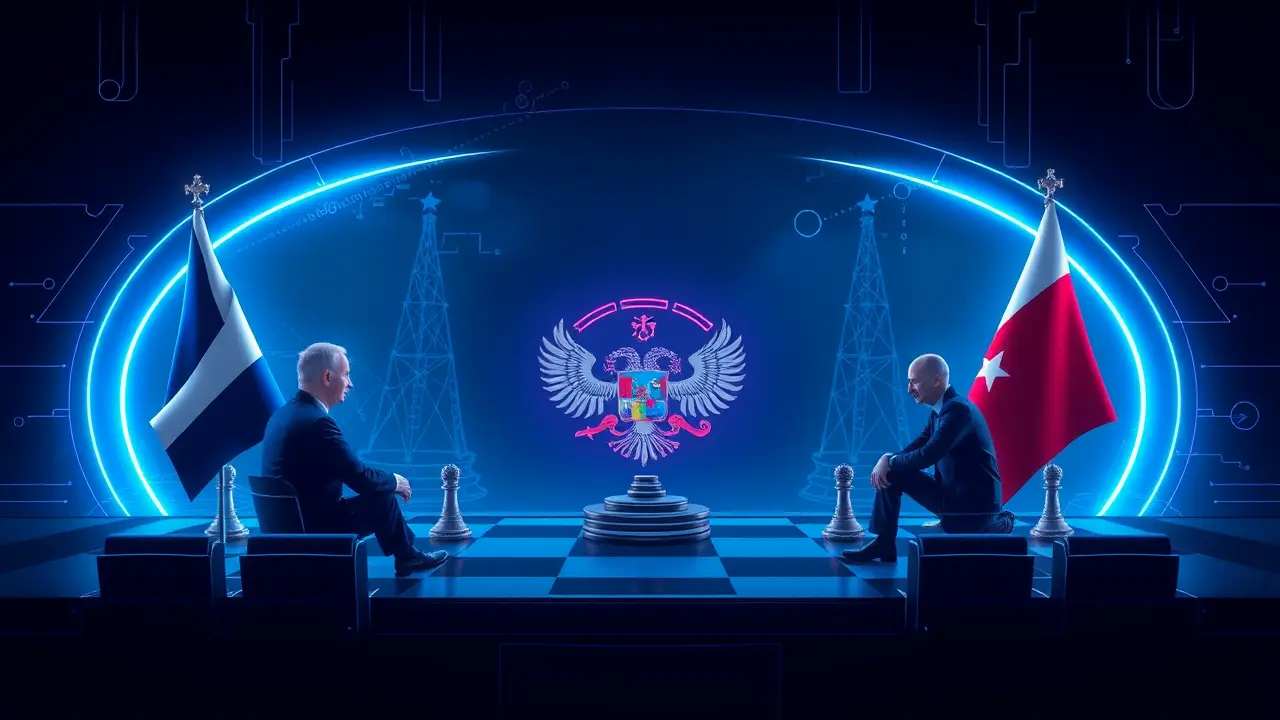Syrian Official Meets Putin in Moscow on Military Cooperation
The geopolitical chessboard shuddered this week as a senior Syrian official landed in Moscow for closed-door talks with President Vladimir Putin, a meeting that, on the surface, reaffirmed Damascus's commitment to host Russian military assets. This isn't merely a routine diplomatic check-in; it's a critical maneuver in a protracted, high-stakes game where the stakes are nothing less than regional hegemony and the future of a multi-front cold war.The Syrian regime, propped up decisively by Russian airpower since its 2015 intervention that turned the tide of the civil war, is now a permanent piece of strategic real estate for the Kremlin. The Tartus naval facility, Russia's only Mediterranean warm-water port, and the Hmeimim airbase are not just symbols of alliance but vital power projection platforms, allowing Moscow to threaten NATO's southern flank, secure maritime trade routes, and counter U.S. influence from the Eastern Mediterranean to the Libyan coast.Analysts parsing the scant official statements suggest this meeting was less about forging new agreements and more about solidifying the existing framework amidst a rapidly shifting landscape. The war in Ukraine has stretched Russian military logistics and command focus, raising quiet concerns in Damascus about the long-term reliability of its patron.Simultaneously, normalisation efforts with other Arab states and persistent, low-level Israeli airstrikes on Iranian assets in Syria create a complex matrix of risks that Moscow must navigate. The scenario planning here is fraught with potential flashpoints: a significant confrontation between Russian and Turkish forces in Idlib, an escalation that draws a more direct U.S. response, or an internal power struggle within Syria should Russian support waver.For Putin, Syria represents a proven model of successful military intervention, a template he would love to replicate elsewhere, but it's also a financial and diplomatic sinkhole. The assurance of continued base access is the bedrock of this relationship, a non-negotiable for the Kremlin's great power ambitions.Yet, this dependency is a double-edged sword for Syria's Assad; it guarantees his regime's survival but cedes a substantial portion of national sovereignty, effectively making Syria a client state. The long-term consequence is a fractured nation, its reconstruction stalled by Western sanctions, its territory partitioned between Russian, Iranian, Turkish, and U.S. influences, becoming a permanent nexus of instability. This meeting in Moscow, therefore, was a risk assessment in real-time, a recalibration of a military partnership that continues to define the balance of power in the Middle East and test the limits of a Russia engaged in a larger, more demanding conflict.
Latest News
The charts are whispering what the true believers have felt in their bones for weeks—Dogecoin is carving out a bottom.
17 hours ago5 comments
The Institute for Fiscal Studies has thrown a stark warning onto Rachel Reeves's desk, urging the Chancellor to confront a potential £22 billion shortfall in
17 hours ago3 comments
Alright, let's break down this absolute heater of a performance from the Chicago Blackhawks, because if you missed this one, you missed a party.
17 hours ago5 comments
The ice was hot last night in the NHL, folks, serving up a slate of games that felt less like a regular season Tuesday and more like a playoff preview with a
18 hours ago3 comments
The XRP chart is painting a tantalizing picture for those with the stomach to withstand the relentless pressure from crypto's leviathans.
18 hours ago4 comments
It’s in the small shifts, the quiet recalibrations of a Thursday morning, where the most meaningful change often takes root.
18 hours ago4 comments
In a move that sent ripples of quiet confidence through the crypto ecosystem, blockchain intelligence firms tracked a monumental treasury allocation from
18 hours ago4 comments
In a move that would have drawn a nod of approval from historical figures like Churchill, who understood the delicate balance of power within democratic
18 hours ago2 comments
JA
Jamie Larson123k4 hours ago
classic syria just being the ultimate risk management sim for everyone involved tbh, what could possibly go wrong
0
JA
Jamie Wilson123k4 hours ago
tbh it feels like they're just locked in a messy relationship at this point smh
0
RY
Ryan Chen123k7 hours ago
geopolitics feels like running legacy code that nobody dares to refactor tbh, just a bunch of nested dependencies waiting to break
0
JA
Jamie Larson123k7 hours ago
geopolitics is just two people refusing to leave a room first smh idk why we even keep score anymore
0
JA
Jake Miller123k8 hours ago
wait what so this is just them checking in cause russia is busy elsewhere tbh it's all just one big messy game
0
JA
Jamie Lawson123k10 hours ago
tbh it feels like they're just locking in their assets while they're stretched thin elsewhere, idk how this doesn't end badly for everyone involved
0
JA
Jamie Larson123k10 hours ago
wait are we just cool with permanent military bases in other countries now idk this whole thing feels like a mess
0
JA
Jamie Larson123k16 hours ago
scrolling with my coffee and did not expect to see this tbh it's all just one big messy chess game smh
0
JA
Jamie Larson123k17 hours ago
tbh it all just feels like a giant mess that never ends smh
0
JA
Jamie Larson123k20 hours ago
this is giving major chessboard villain arc energy ngl the algorithm is gonna be all over this
0
